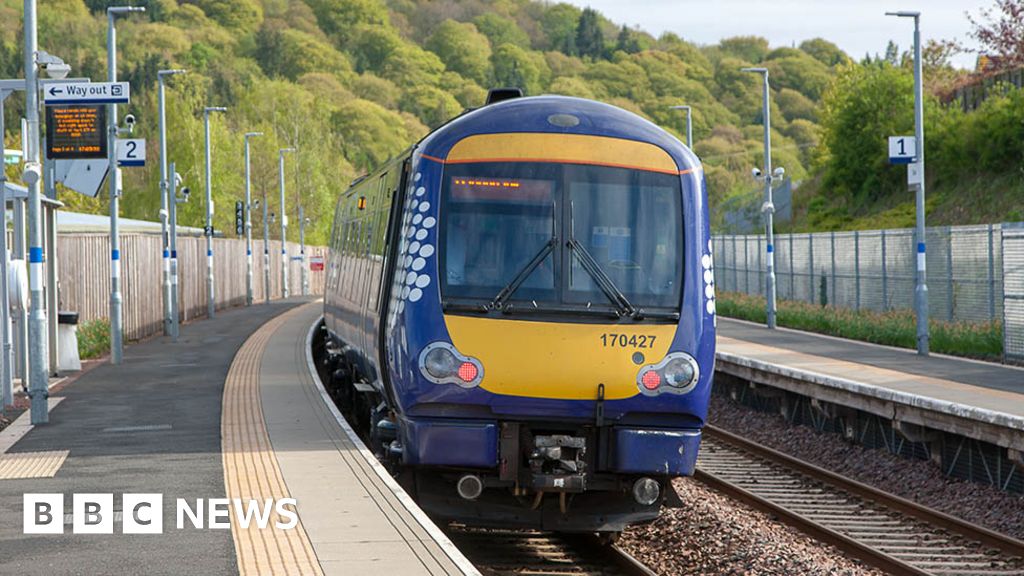Image source, Dougie Johnston
The Scottish government will be unable to deliver its investment plans for public sector infrastructure, a public spending watchdog has warned.
Ministers are not expected to be able to fund all £26bn worth of investments.
An Audit Scotland report found higher costs, increased maintenance needs and reduced budgets would force ministers to reassess spending priorities.
The Scottish government said efficiencies around managing public sector property would be required.
Roads, railways, hospitals and other public buildings all fall under the heading of public sector infrastructure.
Examples given in the report of affected projects included:
Auditor General Stephen Boyle also said NHS treatment centres were also among the projects facing delays and cost increases.
“What’s clear is there is both an increase in costs and a reduction in budget and that will affect both the time taken to deliver the projects and potentially the scope of this work,” he told BBC’s Good Morning Scotland radio programme.
“We refer for example to planned national treatment centres that were central to the governments ambitions to reduce waiting times as a consequence of the pandemic.”
There are currently only three treatment centres operational out of the 11 planned.
“That inevitably will have a direct impact on people lives and experience of the NHS,” he said.
Mr Boyle added that the government needed better data on its infrastructure in order to inform its planning, including better information on the condition, occupancy and cost of the wider public estate.
The return to the public sector of buildings built under private finance initiatives would also need to be planned for, he said.
The Audit Scotland report also noted that the government would face “extreme” challenges when adapting existing public buildings to meet environmental targets.
Why will the target be missed?
A combination of reduced budgets, higher costs and increased maintenance requirements have left ministers with difficult decisions to make on what to fund.
The Scottish government’s capital funding – the money used to fund physical assets rather than day to day expenses like salaries – is declining.
Once inflation has been taken into account, ministers anticipate a 7% cut in real terms in the money the Scottish government receives from the UK government for capital projects between 2023 and 2028.
In addition, construction costs are increasing at the same time as budgets are expected to decrease.
The cost increase of 45 Scottish government infrastructure projects between December 2022 and June 2023 was expected to be at least £55m, the report said.
The Audit Scotland report notes that almost a third of NHS buildings in Scotland are over 50 years old, with a maintenance backlog totalling £1.1bn worth of works needed.
Meanwhile, prisons built during the Victorian era are still in use – something the report raised “significant concern” over.
“The Scottish government will need to understand and deal with backlog maintenance as well as investing in new infrastructure,” the report said. “If it does not do this, it runs the risk of service interruptions and larger investments being needed in the future.”
Targeted spending
Deputy First Minister Shona Robison said the Scottish government was “firmly committed to infrastructure investment” as a means of “delivering high-quality public services”.
She added: “The challenging economic conditions of the last few years resulting from Brexit and high inflation as well as the real-terms fall in the capital grant allocation from the UK government have led to delays for some infrastructure projects.
“Looking ahead we are having to prioritise projects and programmes so the capital spending available is targeted.
“We have also started work on delivering a more efficient approach to the management of public sector property that will save public funds and enable organisations to step towards a net zero estate.”
Murdo Fraser, business and economic growth spokesman for the Scottish Conservatives, said the report was a “damning indictment” of SNP finance mishandling.
Labour’s economy spokesperson Daniel Johnson said: “Ministers must listen to the warnings in this damning report and come clean with the public about their plans.
Willie Rennie, economy spokesman for the Scottish Liberal Democrats, said: “By failing to grow the economy, ministers have left less money for investment in critical infrastructure, which in turn only worsens economic performance.”

